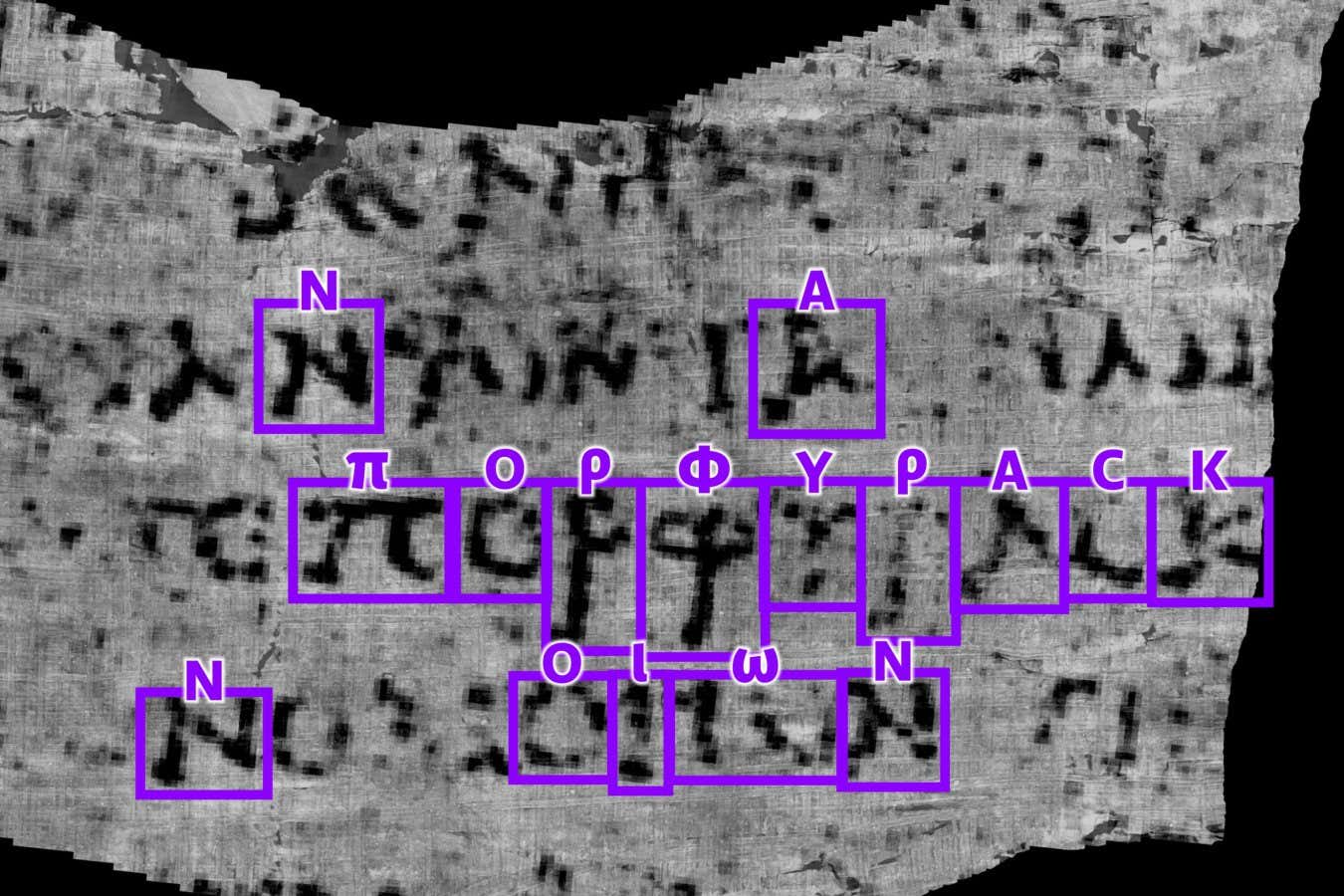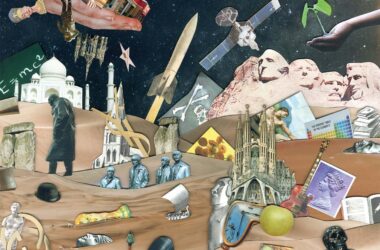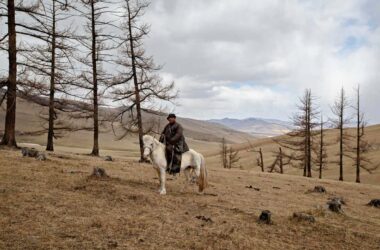After nearly 2000 years, the secrets of the charred scrolls from the library in the ancient Roman town of Herculaneum are being revealed. These scrolls were buried by the volcanic eruption of Mount Vesuvius in AD 79, along with the nearby town of Pompeii. By studying 3D X-ray scans of the scrolls, researchers have managed to decipher a word on one of them: “porphyras”, which means “purple”.
Luke Farritor, a 21-year-old computer science student at the University of Nebraska-Lincoln, played a significant role in this breakthrough. He trained an AI to identify almost invisible ink-like patterns in the 3D scans. When Farritor discovered the first word, it was immediately recognized as Greek by Michael McOsker at the University of Cologne. Farritor participated in the open-source Vesuvius Challenge, which awards prizes for deciphering the scrolls.
Another student, Youssef Nader from the Free University of Berlin, independently discovered the same word using a different AI technique. Nader’s approach involved detecting possible letter shapes within the scroll image segments, offering an even clearer picture. McOsker described Nader’s findings as “even more impressive” than Farritor’s.
The success of both students is built upon the previous work of contributors to the Vesuvius Challenge, who developed computational tools for mapping out segments of the scroll. Additionally, the 3D X-ray scans produced by a team led by Brent Seales at the University of Kentucky were instrumental in this breakthrough.
In the past, papyrologists had to physically unroll the Herculaneum scrolls, damaging the carbonized ancient papyri in the process. Even with the use of 3D imaging and computational techniques, attempts to read the still rolled-up papyri were ineffective. However, with the recent breakthrough, there is hope for someone to claim the Vesuvius Challenge’s grand prize of $700,000 by reading four passages of text from inside two intact scrolls before December 31, 2023.
McOsker expresses confidence in the abilities of Farritor, Nader, and other competitors to solve a whole roll. The prospect of reading a complete text, from beginning to end, is truly remarkable considering the current condition of the unrolled papyri that have been studied.








